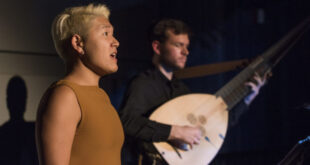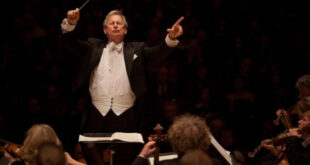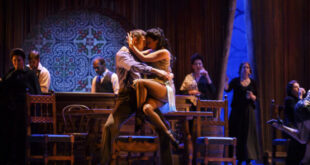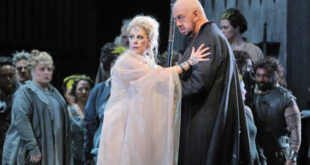When you hear someone say, “We’re going to the opera,” that person is almost surely going to attend a performance of a Romantic Era, or 19th-century opera. And quite probably, the opera to be viewed will be a “tragic” drama, or at least tell a very dark story. For of the 60 or so works that make up the “standard repertoire” (that tiny fraction of all operas composed that are routinely staged most frequently), only about nine are what you might call “comic” pieces. The most popular of these by far is Rossini’s “Il barbiere di Siviglia.” Indeed, “Il barbiere” has been one of the five or six most popular operas of any kind for nearly 200 years.
Why do so few comic operas hold the stage today? Because the heavily sentimental operas of the Romantics represent what audiences wanted to see in those days. And when this era ended, movies became the preferred form of theater. Romantic operas, with female characters and “symphonic” instrumental scores are simply the only ones that sell tickets. The few sparkling comedies, like “Il barbiere” and those of Mozart and Donizetti, are actually examples of the previous century’s taste, when “opera buffa” was much preferred to “opera seria.” We will see how this preference got Rossini into trouble on “Il barbiere’s” opening night.
Virtually all operas are based on some literary source, like a novel or a play. (The only one I can think of that is based on an actual incident in a composer’s life is Leoncavallo’s “Pagliacci.”) Rossini’s “Il barbiere di Siviglia” is adapted from the Beaumarchais play of 1775, “Le Barbier de Séville,” a very typical comic drama of the time. Like most works of this type, a servant-commoner (in this case the barber) outfoxes the aristocrats. The characters and situations of these kinds of comedies had far more relevance to audience members’ lives than those of “serious” works, with their stories about gods, goddesses and heroes of antiquity. At the time of “Il barbiere’s” creation, certain theaters staged tragedies and others put on comedies.
Rossini had scored a success in December 1815 with “Torvaldo e Dorliska,” a “dramma semiserio” at the Teatro Valle in Rome, which specialized in profitable comic pieces. Much to the chagrin of the Valle’s subscribers, Rossini agreed to compose a comic opera for the rival Teatro Argentina, which usually put on tragedies, but at this time needed the box-office appeal of a “buffa.” When “Il barbiere” opened in February 1816 many of the Valle’s regular customers showed up to vent their displeasure at a “tragic” theater staging a comedy.
Another problem for Rossini was that the still-living Giovanni Paisiello had composed a version of “Il barbiere di Siviglia” in 1782 for Catherine the Great in Russia. Rossini did everything he could to assure Paisiello’s followers that his work was far different than the older composer’s and not a rip-off of it. He used a totally different libretto, and even named the opera differently — “Almaviva, ossia l’inutile precauzione” (Almaviva, or The Useless Precaution). To make absolutely certain that no one would think he was “stealing” Paisiello’s ideas, Rossini wrote a long statement for the programs, which detailed all the differences between his work and the one from 34 years before. Like Rossini’s new title, all this proved to be a “useless precaution,” and Paisiello fans almost stormed the stage on opening night. But at the very next performance, what has been known as “Il barbiere di Siviglia” ever since, was a huge success.
“Il barbiere” may be a stock comedy, very much like a “Commedia del’Arte” piece, but its hilarious plot, its miraculous vocal and instrumental score, and its profusion of beautiful and familiar melodies have more than withstood the test of time. Everyone needs to see this Rossini masterpiece at least once.
This season, Lyric Opera is staging Rossini’s beloved “Il barbiere di Siviglia” in yet another new, but traditional, production. The director is Rob Ashford, the sets are designed by Scott Pask and the costumes by Catherine Zuber.
The role of Rosina is a coveted one, and often known to many as a soprano part. But in fact, like Carmen, it was originally scored for a mezzo, and in her Lyric debut, it will be sung by mezzo soprano Isabel Leonard. Returning to the Chicago stage are baritone Nathan Gunn as Figaro, and tenor Alek Shrader as Almaviva. As Bartolo is a Chicago favorite for his interpretation of buffa roles, Alessandro Corbelli. Also making his Lyric debut is conductor Michele Mariotti.
Performances are February 1, 3, 6, 9, 12, 15, 18 21, 25 & 28.
To buy tickets call 312-332-2244 or visit www.lyricopera.org.
 Fra Noi Embrace Your Inner Italian
Fra Noi Embrace Your Inner Italian







